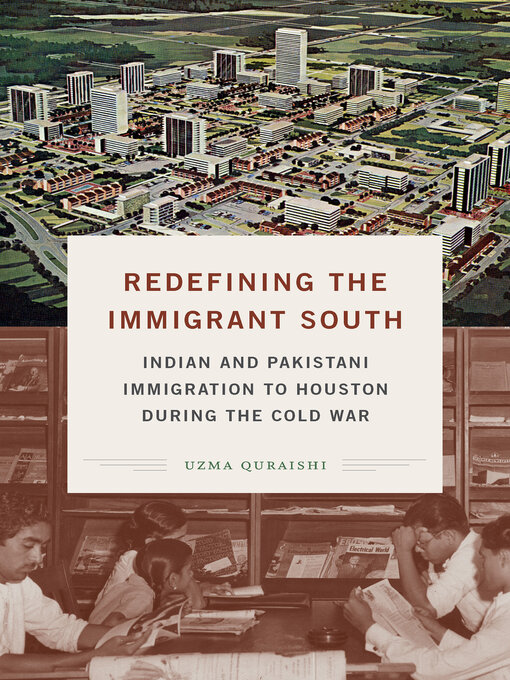-
Description
-
Details
Mining archives and using new oral histories, Uzma Quraishi traces this pioneering community from its midcentury roots to the early twenty-first century, arguing that South Asian immigrants appealed to class conformity and endorsed the model minority myth to navigate the complexities of a shifting Sunbelt South. By examining Indian and Pakistani immigration to a major city transitioning out of Jim Crow, Quraishi reframes our understanding of twentieth-century migration, the changing character of the South, and the tangled politics of race, class, and ethnicity in the United States.

Kindle Book
- ISBN: 9781469655215
- Release date: March 25, 2020
OverDrive Read
- ISBN: 9781469655215
- Release date: March 25, 2020
EPUB ebook
- ISBN: 9781469655215
- File size: 7304 KB
- Release date: March 25, 2020
Formats
Kindle Book
OverDrive Read
EPUB ebook
subjects
Languages
English
Mining archives and using new oral histories, Uzma Quraishi traces this pioneering community from its midcentury roots to the early twenty-first century, arguing that South Asian immigrants appealed to class conformity and endorsed the model minority myth to navigate the complexities of a shifting Sunbelt South. By examining Indian and Pakistani immigration to a major city transitioning out of Jim Crow, Quraishi reframes our understanding of twentieth-century migration, the changing character of the South, and the tangled politics of race, class, and ethnicity in the United States.

-
Details
Publisher:
The University of North Carolina Press
Kindle Book
ISBN: 9781469655215
Release date: March 25, 2020
OverDrive Read
ISBN: 9781469655215
Release date: March 25, 2020
EPUB ebook
ISBN: 9781469655215
File size: 7304 KB
Release date: March 25, 2020
-
Creators
- Uzma Quraishi - Author
-
Formats
Kindle Book
OverDrive Read
EPUB ebook
-
Languages
English
Why is availability limited?
×Availability can change throughout the month based on the library's budget. You can still place a hold on the title, and your hold will be automatically filled as soon as the title is available again.
The Kindle Book format for this title is not supported on:
×Read-along ebook
×The OverDrive Read format of this ebook has professional narration that plays while you read in your browser. Learn more here.
